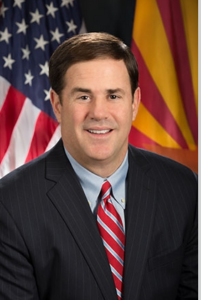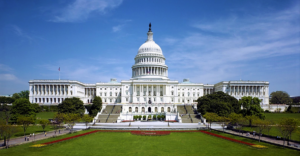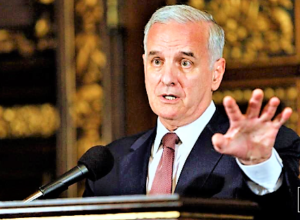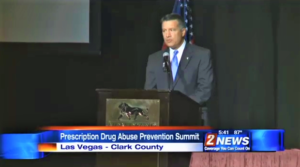- Virginia lawmakers aim to stop people from abusing their pets’ prescriptions (richmond.com)
Virginia’s fight against rising rates of opioid addiction has an unlikely new front: the vet’s office...the General Assembly is poised to begin tracking prescriptions issued to animals through the state’s prescription monitoring program...The system was put in place more than a decade ago to help identify human patients who visit multiple doctors to obtain painkiller prescriptions. The new law would expand it to make it easier to identify people who frequently seek out drugs with high potential for abuse for their pets, said the measure’s sponsor, state Sen. William Stanley, R-Franklin...“You’re talking about not just opioids,” Stanley said. “If your dog is afraid of thunder, they’re giving a sedative. There’s a lot of drugs that, when they’re administered to a person, it goes through the (monitoring) system, but it’s not happening for pet owners.”...The measure passed the Senate unanimously and the House of Delegates 97-1. It now goes to Gov. Ralph Northam’s desk.
- Nevada State Board of Pharmacy News January 2018 (bop.nv.gov)
- Reappointment of Jason Penrod
- A New Era for Compounding Inspections
- Senate Bill 59 Makes Changes in Reporting to the Nevada PMP
- PMP Data Submission Accuracy Data
National Pharmacy Compliance News First Quarter 2018
- FDA Draft Guidance Addresses Delayed Enforcement of DSCSA Requirements for Product Identifiers
- Amount of Prescribed Opioids Remains High, Reports CDC
- AMA Opioid Task Force Encourages Co-Prescribing Naloxone to At-Risk Patients
- Opioid Addiction Medications Should Not Be Withheld From Patients Taking Benzodiazepines or CNS Depressants
- New Study Shows Substantial Variation in the Availability of Pharmacies Across the Country
- Consent Decree Entered Against Outsourcing Facility Isomeric Pharmacy Solutions
- FDA Issues Warning on Alcohol Pads or Benzalkonium Chloride Antiseptic Towelettes Made by Foshan
- Arizona governor signs opioid crackdown legislation (reuters.com)
Republican Governor Doug Ducey...signed into law legislation intended to crack down on opioid abuse, calling it vital to combat an epidemic felt statewide and across the nation...The legislation includes new regulations that will limit initial opioid prescriptions to five days and set a maximum of 30 days for certain patients receiving highly addictive painkillers...Other measures call for $10 million to be spent treating opioid abusers who are underinsured and ineligible for Medicaid. A controversial provision holds harmless those reporting potential overdoses...Despite the unanimous final vote, some lawmakers raised concerns about the unintended consequences of the state becoming more involved in doctor-patient issues, fearing it may hurt individuals needing opioids...
- Australia to permit medicinal cannabis exports in bid to capture lucrative market (reuters.com)
Australia said on Thursday it planned to become the fourth country in the world to legalise medicinal marijuana exports in a bid to score a piece of the estimated $55 billion global market...Cannabis cultivation in Australia is still relatively small, as recreational use remains illegal. But the government hopes domestic medicinal use, legalised last year, and exports will rapidly boost production...“Our goal is very clear: to give farmers and producers the best shot at being the world’s number one exporter of medicinal cannabis,” Health Minister Greg Hunt told reporters in Melbourne...Shares in the more than a dozen Australian cannabis producers listed on the local exchange soared after the announcement...The Australian government’s proposal needs to pass federal parliament when it returns to session in February. The country’s main opposition Labor Party has signalled it would support the move.
- Kentucky could become the first state to tax opioid prescriptions (statnews.com)
Lawmakers in Kentucky are weighing whether to impose a new tax on opioid prescriptions, the latest effort in a string of so-far failed attempts to pull new revenue from the painkillers that helped seed a nationwide addiction crisis...The proposed tax — a 25-cent levy on drug distributors for every dose sent to the state — was approved by the Kentucky House...as part of a broader budget and tax plan. But unlike in other states, where lawmakers aimed to steer the new revenue to addiction treatment and education programs, the Kentucky plan...would direct the money to fill budget gaps elsewhere, including boosting funding for the state’s public schools...the Healthcare Distribution Alliance, which represents drug distributors, said that “if a regressive tax is imposed on any product, particularly a healthcare product, it will limit the ability for legitimate patients to access the medicines they require for the treatment of chronic pain or palliative care.”
- Drug industry scrambles after rare loss in budget deal (thehill.com)
Pharmaceutical companies are pushing to repeal or roll back a provision in last week’s budget deal that delivered a rare loss to their industry...A provision included in the budget deal approved...raised the share of costs that drug companies have to pick up as part of closing the “donut hole,” a gap in drug coverage for Medicare Part D beneficiaries...Drug companies are quickly mobilizing to try and undo the change, or at least roll it back in some fashion. The most likely avenue is the long-term government funding bill that Congress is expected to pass in March, the lobbyists said...The budget deal raised the share of costs in the donut hole that drug companies have to pick up from 50 percent to 70 percent. The drug companies are pushing proposals that would put the share at 60 percent or even lower, sources say...The change in the budget deal would not go very far in reducing drug costs for patients, though it does impose some new costs on drug companies. The proposal was not championed by groups that want action to lower drug prices.
- Lawmakers weigh measure to fight high drug prices (thehill.com)
Lawmakers are considering adding a measure aimed at fighting high drug prices to an upcoming spending deal, in what would be a rare defeat for the powerful pharmaceutical industry...The measure, known as the Creating and Restoring Equal Access to Equivalent Samples Act, is intended to prevent branded drug companies from using tactics to delay competition from cheaper generic drugs...Pharmaceutical companies are pushing back and lobbying against the measure, arguing it would harm patient safety and open companies up to wasteful lawsuits...But they might not be successful in their effort. Lobbyists and congressional sources say the measure could be added to a long-term government funding bill as a way to help pay for higher budget caps. The measure is estimated to save more than $3 billion...The measure would allow a generic company to develop its own safety protocol for a drug rather than have to develop a shared protocol with the branded company. Supporters of the bill say there would still be rigorous standards in place to ensure safety...The bill would also allow generic drug makers to sue to obtain the samples they need. Powaleny warned the bill would lead to “wasteful litigation between companies.”
- Clarifying regulations could address some doctor concerns with new opioid law (thenevadaindependent.com)Information Regarding AB 474 (bop.nv.gov)Nevada Prescription Drug Abuse Prevention Act is Effective Jan. 1, 2018 (gov.nv.gov)
It’s been nearly two months since a law requiring doctors to take additional steps before writing prescriptions for opioids went into effect, though some of the questions and concerns raised by doctors about the law are only now just starting to be answered...A subcommittee formed specifically to address concerns related to the implementation of the law grappled with some of the areas of uncertainty at a recent meeting with the goal of ultimately clarifying the exact steps doctors must take when writing a prescription for painkillers and figuring out what punishment they should face should they fail to do so. But to what extent that clarification can or should be codified into state regulations will be up to the Board of Pharmacy, which will discuss the matter at a meeting early next month...Though the law, AB474, applies to any prescriber of opioids — from advanced practice registered nurses to dentists — most of the concerns about the law have come from medical doctors, who have lamented the extra time obtaining an informed consent and making a “good faith effort” to obtain a patient’s medical records. Some have even said they won’t write any more prescriptions for painkillers in response to the law and will direct patients instead to pain doctors...The Board of Medical Examiners is responsible for creating any disciplinary regulations they deem appropriate, but the law leaves any other clarifying regulations up to the Board of Pharmacy.
- Minnesota renews push for tax on prescription opioids (reuters.com)
Minnesota Governor Mark Dayton...announced a renewed legislative proposal to tax prescription opioid pills to help fund treatment...Minnesota is one of at least 13 states to have considered an opioid tax in recent years to help pay for the fallout from the United States’ opioid epidemic, although none have passed, according to the National Conference of State Legislatures...Dayton’s proposal would levy a one-cent tax on drugmakers for each milligram of active ingredient in a prescription pain pill, generating an estimated $20 million a year for prevention, policing, emergency response and treatment...
- Nevada doctors voice concerns over opioid law implementation (ktvn.com)
Nevada's new opioid prescription law is only days old but doctors already are worried about how it might be implemented...physicians, lawyers and others expressed concerns this week to the state medical and dental boards over draft disciplinary rules for doctors who write improper prescriptions for pain medications...Under the proposed rules, doctors who violate the new law five times would lose their licenses. The threshold on losing a license would be reduced to three violations by 2020...Several doctors who attended the meeting say the proposed rules don't specify the exact conduct that could lead to penalties or the loss of medical licenses...The doctors voiced concerns that they could be punished for relatively minor mistakes or employee errors.










